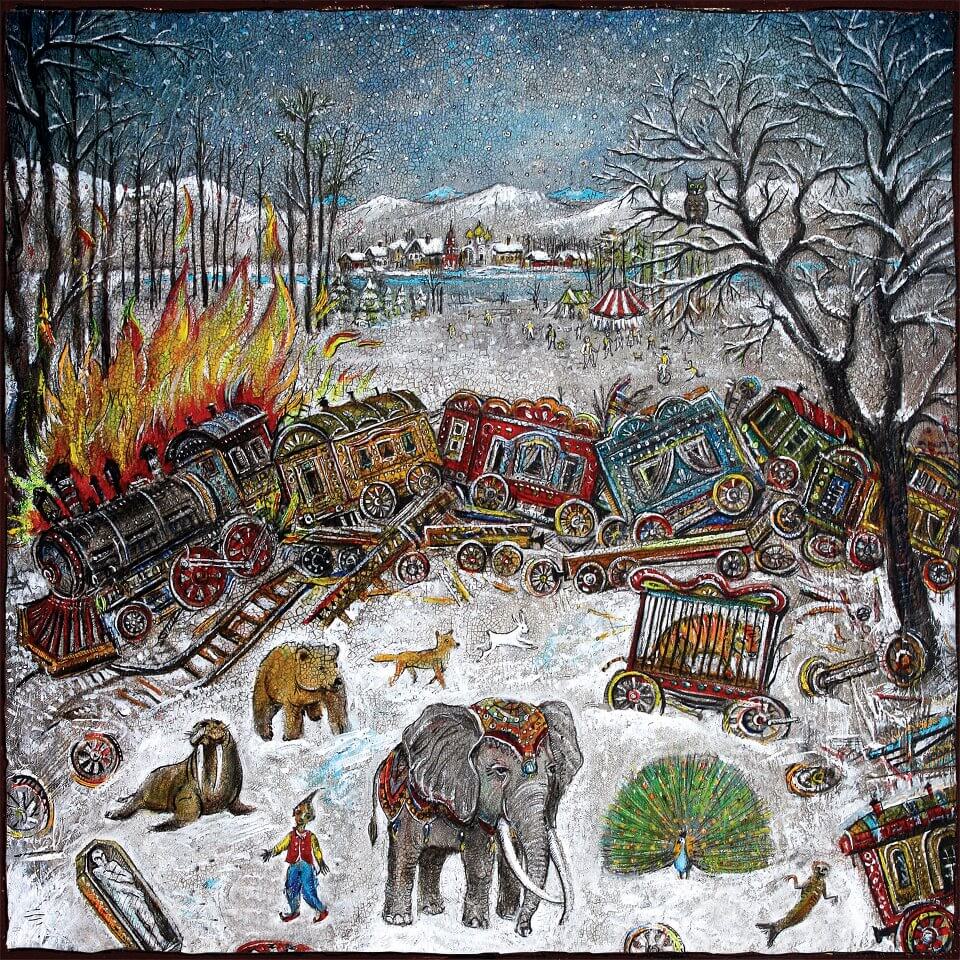 MeWithoutYou- Ten Stories
MeWithoutYou- Ten Stories
It’s been three years since Philadelphia’s Mewithoutyou has released a full-length record, and in that time, a lot has changed. From leaving their home at Tooth and Nail Records, to heading out on more obscure tours, Mewithoutyou (MWY) has seemingly set out to reinvent and reinvigorate their person. Though the band’s 2009 release, It’s All Crazy! It’s All False! It’s All a Dream, It’s Alright, garnished critical acclaim, it essentially left fans divided. Moving farther away from their post-hardcore roots, MWY created an album that was their next progressive step.
Though their last record was far from a misstep, MWY have seemingly doubled back to come full circle with their fifth full-length record, Ten Stories. Digging back into their roots, the four (sometimes five) piece alternative/indie outfit has created a record that delves into their discography without rehashing or relying on it.
Ten Stories delivers eleven songs that capture the refinement of their more recent works, as well as the ferocity and emotion of earlier catalogue entries. A concept record, the story centers on a 19th century traveling circus whose train crashes in Montana. As a result each member must deal with a number of emotions and themes including loss, shock, fear, love, and change.
MWY waste no time in servicing their story through their newly expansive sound. Album opener “February 1878” captures the post hardcore elements sprinkled throughout the band’s first two releases, as well as kicks off the record’s story. Over the next few tracks, MWY deliver songs, which span the full spectrum of their tonality. More importantly, MWY firmly establish Ten Stories as being a culmination of their musical identity.
Tracks such as “Grist for the Malady Mill,” “Aubergine,” and “Bear’s Vision of St. Agnes” display a new approach to the latter half of the bands discography. Songs draped in horns and keys service the arc of the concept as they help establish mood. By blending the story with a new approach the album explores its progression in genre through progression in story.
As a whole Ten Stories works as it is even in it’s displaying of story and music. Yet, the placement of vocalist Aaron Weiss as the centerpiece of the album is its most compelling aspect. The parallels between the lyrics and the themes are truly astounding. Never have songs about bears and foxes been so humanistic and relatable. Weiss delivers some of his most potent and thought provoking lyrics with an urgency and gravity that is both eerie and sincere.
Though Weiss may be the voice driving the story and sound forward, the rest of the band do more than carry their weight. Guitarist/Keyboardist/Vocalist Michael Weiss has no trouble balancing the complexities of multiple genres. With heavy distortion, feedback, and hauntingly clean glass tones, guitars help steers the tonality of each song. Along with guitars, bass plays an important role throughout Ten Stories. Bassist Greg Jehanian does more than drive each song with a backbone. Instead he bridges the quirks of melody with the dynamic of rhythm. Drummer Rickie Mazzotta provides solid skeleton to each song. His style ranges from aggressive and hard hitting to delicate and restrained, which serves the overall record very nicely.
Though Ten Stories is undoubtedly a great record, it is not with out its flaws. MWY spans the genres they previously inhabited successfully; however, it is done to an extent. Throughout bridging genres, some songs seem to loose their primary focus. Though each member does their best to steadily navigate through style, some tracks feel disjointed and underdeveloped. Though these songs still carry the momentum of the record forward, they are noticeably lesser songs amongst the track list.
A few mismanaged tracks aside, Ten Stories sill manages to be a solid entry into the band’s canon. It is a unifying album that comes across as thoughtful and natural. The album finds its strength in its sincerity as it spends enough time with each stage of MWY. There are as many vocal whelps and distorted guitars as there are whispered melodies and horns and keys. Mewithoutyou have found strength in the way they do not disregard their catalogue. Instead, they take everything, the good and the band, and reexamine it to create a new approach.



























